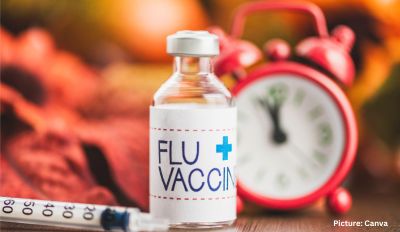The US Food and Drug Administration (FDA) has made a significant decision after nearly five years of deliberation, allowing yogurts to carry a limited claim suggesting their potential in reducing the risk of type 2 diabetes. This marks the first qualified health claim ever issued by the FDA for yogurt. A qualified health claim, as defined by the FDA, is one that “are supported by scientific evidence, but do not meet the more rigorous ‘significant scientific agreement’ standard required for an authorized health claim.” This means that while there is evidence supporting the claim, it does not meet the highest standard of scientific agreement.
The specific claim approved by the FDA states that consuming yogurt regularly, at a minimum of 2 cups (3 servings) per week, may potentially reduce the risk of type 2 diabetes. This is based on limited scientific evidence and is aimed at addressing a disease affecting millions of people in the US and globally. The serving size recommendation is rooted in the FDA’s assessment that this amount is necessary to achieve the claimed effect, as supported by research from two prospective cohorts.
Yogurt, made from milk fermented with bacteria known as probiotics, contains essential nutrients such as calcium, protein, B vitamins, and various minerals including magnesium, phosphorus, and potassium.
This decision came about following a petition submitted in 2018 by Danone North America, a food and beverage company. The FDA initiated a review of existing research on the link between yogurt consumption and type 2 diabetes in response to this petition. Dr. Caroline Passerrello, a registered dietitian nutritionist and instructor at the University of Pittsburgh, acknowledged the submission’s adherence to proper procedures and inclusion of peer-reviewed research.
However, despite the supporting research, it is acknowledged that the evidence is limited and not particularly robust. Dr. Passerrello noted that the studies conducted suggest a correlation rather than a causal relationship between yogurt consumption and type 2 diabetes.
Qualified health claims have been permissible for dietary supplements since 2000 and for food since 2002, though they are infrequently granted. Only a handful of foods have received such claims over the past decade, including cocoa powder high in flavonol for reduced cardiovascular disease risk and certain cranberry products for decreased chances of recurrent urinary tract infections among women.
Dr. Marion Nestle, a nutritionist and molecular biologist, expressed skepticism regarding qualified health claims, labeling them as inherently dubious. She questioned the logic of assuming that simply consuming 2 cups of yogurt weekly could prevent type 2 diabetes, especially considering the prevalence of sweetened yogurts. Dr. Nestle emphasized that the FDA’s review found no significant difference in outcomes based on sugar content, suggesting that sugar is not a relevant factor in this claim.
She also pointed out the multifactorial nature of type 2 diabetes, indicating that while yogurt can be part of a healthy diet, attributing diabetes prevention solely to yogurt consumption lacks context. Dr. Nestle advised consumers to exercise common sense when evaluating such health claims and to consider the overall quality of their diet.
Research suggests limiting daily added sugar intake to less than 25 grams, equivalent to approximately 6 teaspoons. This quantity can be found in various foods, such as chocolate chip cookies, fruit punch, or honey.











